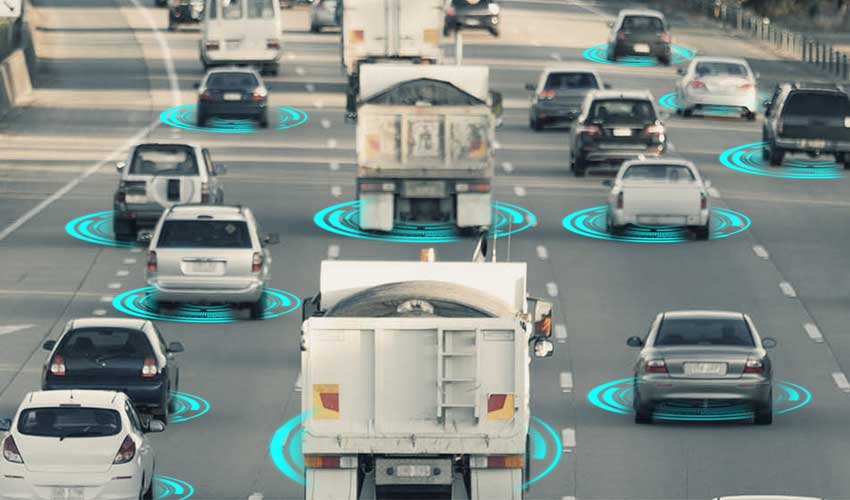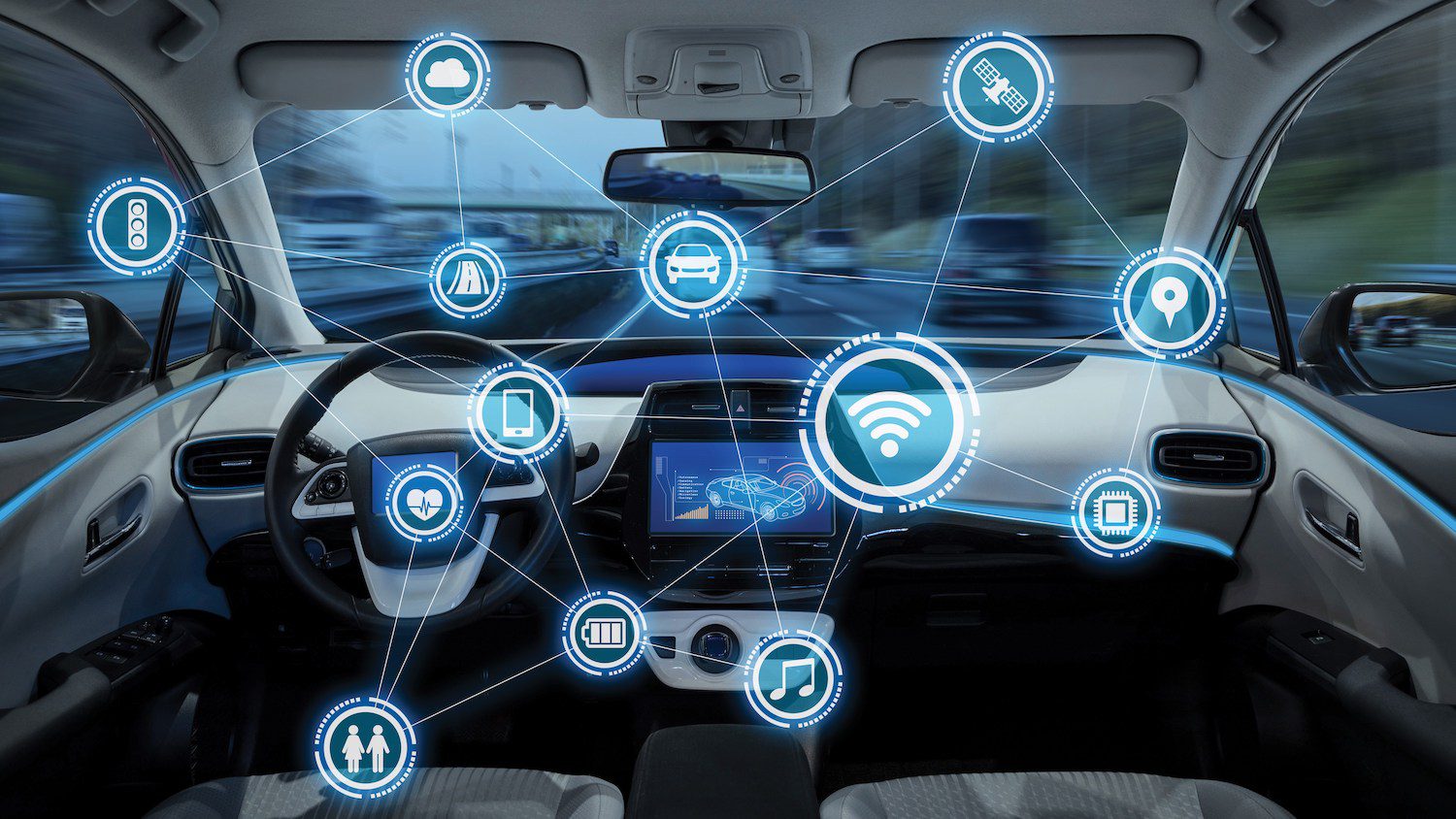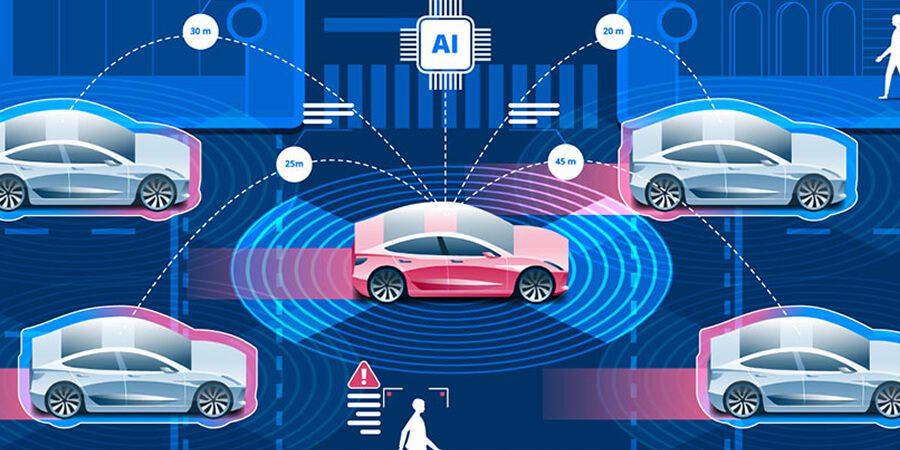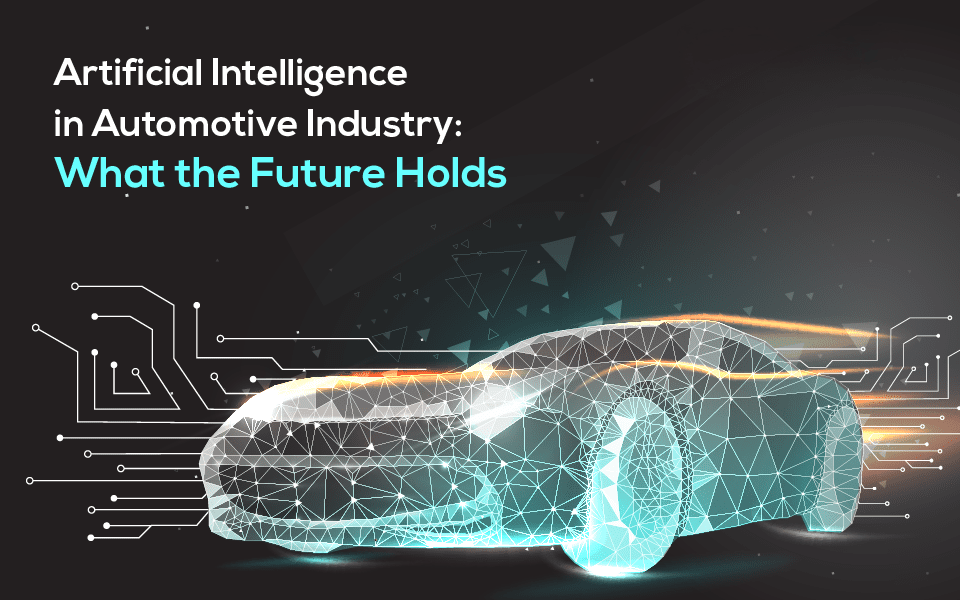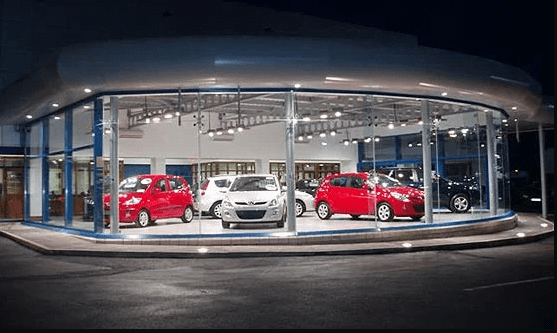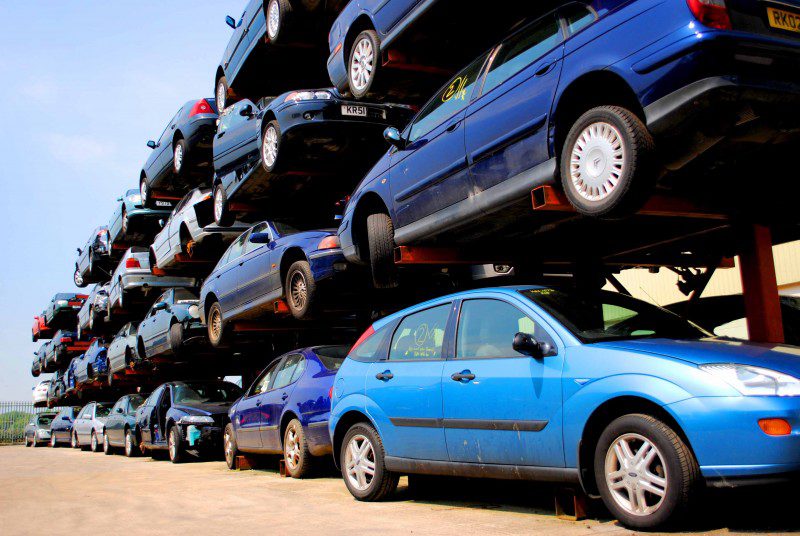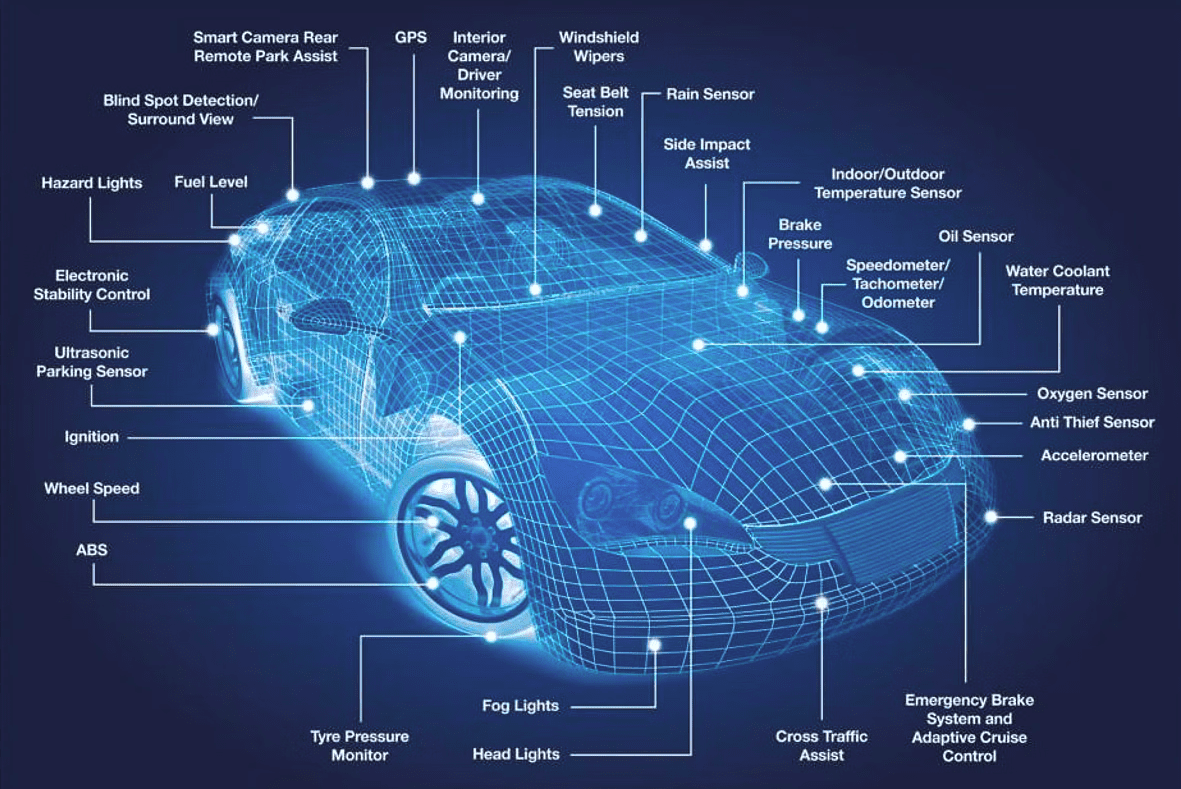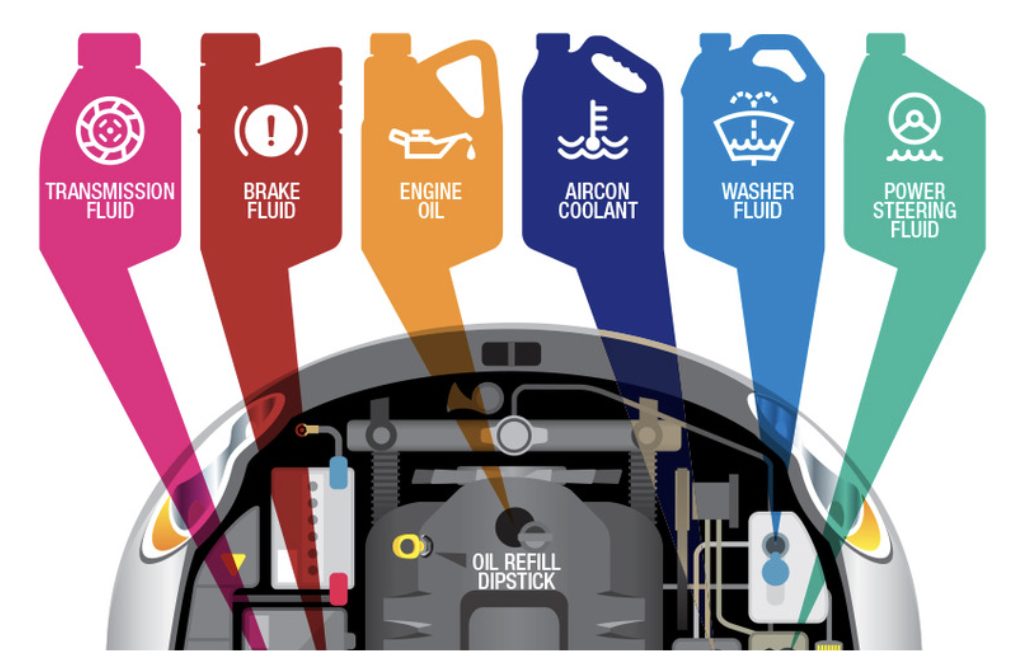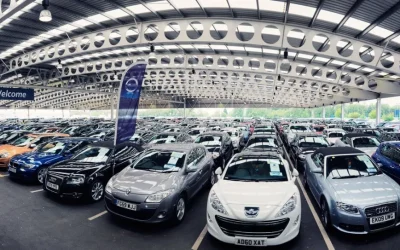Find unbeatable deals on repossessed cars. Our guide helps you navigate the market, set a budget, inspect vehicles, and more. Start saving now!
aspect of car maintenance is regularly checking and changing the various fluids that keep your
vehicle running efficiently.
The Power of Connected Cars AI: Revolutionizing the Automotive Industry
The Rise of Connected Cars: Revolutionizing Transportation with AI
How AI is revolutionizing the automotive industry through seamless connectivity, data exchange, and communication in connected cars. Explore the benefits, future possibilities, and unique value proposition of AI-enabled vehicles.
- Introduction
- Benefits of AI-Enabled Connectivity
- Data Exchange: The Fuel of Connected Cars
- Enhanced Communication with the Surrounding Environment
- The Future of Connected Cars
Introduction
The automotive industry is on the verge of a monumental shift as connected cars emerge as a game-changer. This transformative phenomenon is being fueled by the incredible power of artificial intelligence (AI), propelling vehicles into a new era of innovation. With AI at their core, these intelligent vehicles are revolutionizing transportation as we know it, ushering in a future where seamless connectivity, data exchange, and communication with the surrounding environment are the new norm.
Connected cars, infused with cutting-edge AI technology, are unlocking a host of unprecedented possibilities. These vehicles are seamlessly integrated into the digital landscape, leveraging advanced sensors, cameras, and communication systems to gather real-time data from their surroundings. Through sophisticated algorithms and machine learning capabilities, they can analyze this data to make intelligent decisions, enhancing safety, efficiency, and overall driving experience.
Imagine a world where cars communicate with one another, exchanging vital information such as road conditions, traffic patterns, and potential hazards. With AI as the driving force, connected cars have the potential to optimize traffic flow, reduce congestion, and minimize accidents. This transformative technology is paving the way for a future where our vehicles become interconnected entities, collectively working towards safer and more efficient transportation systems.
Moreover, the benefits of AI-enabled connectivity extend far beyond the realm of driver convenience. These intelligent vehicles are equipped with advanced infotainment systems, personalized user interfaces, and voice recognition capabilities, enhancing the overall driving experience for passengers. From in-car entertainment and navigation to personalized recommendations and concierge services, connected cars are redefining what it means to travel in comfort and style.
As the automotive industry continues its rapid evolution, the rise of connected cars presents a myriad of opportunities for manufacturers, software developers, and service providers. It is an exciting time of collaboration and innovation, where stakeholders are coming together to shape the future of mobility. From developing AI algorithms that enhance autonomous driving capabilities to creating robust cybersecurity measures to protect connected vehicles from potential threats, the automotive landscape is ripe with possibilities.
The automotive industry is experiencing a profound transformation propelled by the rise of connected cars and the integration of artificial intelligence. These intelligent vehicles are revolutionizing transportation by enabling seamless connectivity, data exchange, and communication with the surrounding environment. As AI continues to advance, the potential for enhanced safety, efficiency, and passenger experience in the automotive sector is boundless. Embracing this technological revolution is crucial for industry players to stay ahead and shape the future of mobility.
Benefits of AI-Enabled Connectivity
The automotive industry is on the brink of a remarkable transformation with the advent of connected cars. Powered by artificial intelligence (AI), these intelligent vehicles are reshaping transportation as we know it. By enabling seamless connectivity, data exchange, and communication with the surrounding environment, connected cars offer a host of advantages that enhance safety, optimize traffic flow, and elevate the overall driving experience.
- Connected Cars and Wireless Connectivity: At the heart of this revolution is the ability of connected cars to establish wireless connections. These advanced vehicles can communicate with each other, infrastructure, and other smart devices, paving the way for a more interconnected and intelligent transportation ecosystem. Through these wireless connections, vital information can be shared, enabling real-time updates on road conditions, traffic patterns, and potential hazards. This constant flow of data enhances safety on the roads and empowers drivers with valuable insights for making informed decisions.
- AI-Driven Decision Making: The integration of AI in connected cars unlocks a new realm of possibilities. AI algorithms can analyze the vast amounts of data received from various sources, including other vehicles and smart devices, to make intelligent decisions. By leveraging this data, AI can optimize traffic flow, predict congestion points, and suggest alternative routes to alleviate traffic jams. This intelligent decision-making process leads to smoother and more efficient transportation, reducing travel times and improving overall mobility.
- Enhancing the Driving Experience: Connected cars not only enhance safety and optimize traffic flow but also revolutionize the driving experience. With AI-powered connectivity, vehicles can offer personalized services and features to drivers and passengers. From real-time navigation assistance and predictive maintenance alerts to entertainment options tailored to individual preferences, the driving experience becomes more enjoyable and convenient. Additionally, connected cars can integrate with smart home systems, allowing seamless integration between the vehicle and the driver’s connected lifestyle.
- Advancements in Smart Infrastructure: The rise of connected cars goes hand in hand with the development of smart infrastructure. Traffic lights, road signs, and other roadside infrastructure can be equipped with sensors and AI capabilities, creating an intelligent network that interacts with connected vehicles. This integration enables dynamic traffic management, adaptive traffic signals, and efficient routing, further optimizing the transportation system as a whole. The collaboration between connected cars and smart infrastructure leads to a more synchronized and harmonious flow of traffic.
Conclusion: The automotive industry is undergoing a significant evolution with the rise of connected cars driven by AI. Through wireless connectivity and intelligent decision-making, these vehicles are transforming transportation by enhancing safety, optimizing traffic flow, and elevating the overall driving experience. As we embrace this technological revolution, the future of connected cars holds great promise for a more efficient, interconnected, and enjoyable transportation ecosystem.
Data Exchange: The Fuel of Connected Cars
AI-powered connected cars generate and analyze vast amounts of data. This data includes real-time information about vehicle performance, traffic conditions, weather updates, and more. By leveraging AI algorithms, connected cars can make sense of this data, extract valuable insights, and optimize various aspects of the driving experience, from navigation to energy efficiency.
- Real-time Traffic Conditions: Connected cars receive continuous updates on traffic conditions through data sources such as GPS, traffic sensors, and crowd-sourced information. By analyzing this real-time data, AI algorithms can identify traffic congestion, accidents, or road closures. Armed with this information, connected cars can suggest alternative routes to drivers, helping them avoid delays and navigate more efficiently. For example, Google Maps provides real-time traffic updates and suggests optimal routes based on data collected from millions of connected devices worldwide.
- Predictive Maintenance: Connected cars gather data related to vehicle performance, including engine diagnostics, tire pressure, and fuel consumption. By analyzing this data using AI algorithms, potential maintenance issues can be identified proactively. For instance, if the AI system detects a decline in engine performance, it can notify the driver about the need for a maintenance check or even schedule a service appointment automatically. This predictive maintenance approach helps prevent breakdowns and ensures optimal vehicle performance. Learn more about predictive maintenance from Tesla, a leading electric vehicle manufacturer that utilizes AI algorithms for maintenance optimization.
- Energy Efficiency and Optimal Driving: Connected cars can optimize energy efficiency by analyzing various factors such as driving patterns, traffic conditions, and terrain. AI algorithms process this data and provide recommendations to drivers on how to optimize fuel consumption or battery usage. For example, the Tesla Model S uses AI algorithms to learn from driving patterns and adjust the car’s energy usage accordingly, maximizing the vehicle’s range. These recommendations not only reduce environmental impact but also help drivers save on fuel costs. Discover more about energy efficiency in connected cars from Tesla.
- Weather Updates and Safety: By accessing weather data in real-time, connected cars can adapt to changing weather conditions and provide relevant safety recommendations. For instance, if heavy rain is detected ahead, the AI system can alert drivers to slow down and adjust their driving behavior accordingly. Additionally, connected cars can integrate with weather forecasting services to provide drivers with accurate weather updates along their route. Stay informed about weather conditions through services like the National Weather Service.
Enhanced Communication with the Surrounding Environment
AI enables connected cars to communicate seamlessly with the surrounding environment. Through sensors, cameras, and advanced algorithms, these vehicles can detect and respond to pedestrians, cyclists, traffic signals, and other road elements. This communication leads to safer driving, adaptive cruise control, and improved traffic management.
- Safer Driving: Connected cars equipped with AI technology can detect potential hazards on the road and take proactive measures to prevent accidents. For example, AI algorithms can analyze data from sensors and cameras to identify pedestrians or cyclists in the vehicle’s vicinity. By alerting the driver or even applying emergency braking if necessary, connected cars help reduce the risk of collisions. This article by BMW provides insights into how AI-enabled safety features in connected cars enhance road safety.
- Adaptive Cruise Control: AI-powered connected cars incorporate adaptive cruise control systems that use sensor data to maintain a safe distance from other vehicles. By analyzing the speed and distance of surrounding cars, these systems adjust the vehicle’s speed accordingly, ensuring a smooth and safe driving experience. This article by Audi explores how AI algorithms in connected cars enable adaptive cruise control for enhanced driving comfort.
- Improved Traffic Management: Connected cars, through their AI capabilities, contribute to more efficient traffic management. By analyzing real-time traffic data and historical patterns, AI algorithms can identify congestion-prone areas and suggest alternate routes to drivers. This not only helps individual drivers save time but also contributes to overall traffic flow optimization. HERE Technologies provides comprehensive traffic management solutions leveraging AI technology, enhancing the efficiency of connected cars and urban mobility.
The Future of Connected Cars
The future of connected cars powered by AI holds tremendous potential. As technology continues to advance, we can expect even greater levels of automation, personalization, and integration with smart city infrastructure. The seamless connectivity and data exchange facilitated by AI will pave the way for safer, more efficient, and environmentally friendly transportation systems.
- Automation: AI-powered connected cars are already equipped with advanced driver assistance systems (ADAS) that enable features like lane-keeping assistance, automatic emergency braking, and self-parking capabilities. However, the future holds even more exciting possibilities. With ongoing developments in AI and machine learning, we can anticipate fully autonomous vehicles that can navigate complex road scenarios without human intervention. Companies like Tesla are at the forefront of autonomous driving technology, pushing the boundaries of what connected cars can achieve.
- Personalization: AI enables connected cars to personalize the driving experience based on individual preferences and needs. From customized infotainment options to tailored climate control settings, AI algorithms can learn from driver behavior and adjust various parameters accordingly. Additionally, connected cars can provide personalized recommendations for nearby points of interest, restaurants, and entertainment options. This article by Ford explores the future of personalized experiences in connected cars.
- Integration with Smart City Infrastructure: As cities become smarter and more interconnected, AI-powered connected cars will play a vital role in integrating with the broader smart city ecosystem. These vehicles will communicate with traffic management systems, parking infrastructure, and even public transportation networks to optimize mobility and reduce congestion. By leveraging real-time data from various sources, connected cars can contribute to efficient traffic flow, reduce emissions, and enhance overall urban mobility. The Smart Cities Council provides insights into the integration of connected cars with smart city infrastructure.
- Environmental Benefits: The combination of AI and connected cars has the potential to significantly reduce the environmental impact of transportation. AI algorithms can optimize driving routes to minimize fuel consumption and emissions, taking into account factors such as traffic conditions and road gradients. Connected cars can also facilitate the transition to electric and hybrid vehicles by providing real-time information about charging stations and optimizing energy usage. This article by Green Car Reports highlights the environmental benefits of AI-powered connected cars.
As we look to the future, the convergence of AI and connected cars will reshape the automotive industry and redefine our transportation experience. With enhanced automation, personalized features, integration with smart city infrastructure, and environmental benefits, AI-powered connected cars will revolutionize how we travel and contribute to building more sustainable and efficient transportation systems.
What is the future of artificial intelligence in the automotive industry?
How can AI be used in the automotive industry?
What is the future scope of AI in autonomous vehicles?
What is the future of the automotive industry?
Which 4 innovation fields are defining the future of the car industry?
How is technology changing the automotive industry?

MORE VEHICLES
GAUK has developed powerful aggregation software that is monitored by real, live humans and only sources clean data.AUCTIONS
Search ALL vehicles coming up for auction at the country’s leading sale rooms.CLASSIFIEDS
Each day we gather up-to-the-minute information from multiple car classifieds websites across the internetDEALERS
Search, save and compare car dealer vehicles across the entire UK.
Joel Marchant



